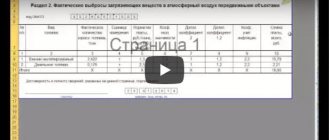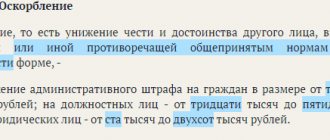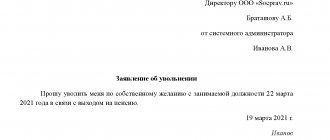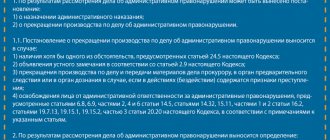Payment of utilities without a contract
The need to conclude a special agreement between the resource supplier company and the consumer arises due to a number of negative events that are currently observed in the payment structure for utilities. Companies that do not receive payment for the resources provided are forced to file lawsuits against the HOA, which, in turn, only indirectly has obligations. Legally, management organizations remain responsible for the irresponsibility of willful defaulters.
The introduction of binding contracts will resolve this uncertainty. From now on, the agreement will be created directly between the service company and the population. Such innovations will reduce tension throughout the utility sector and increase the effectiveness of sanctions against debtors.
It is worth considering that the new legislative framework will allow government agencies to apply radically different sanctions against citizens whose debts have long outgrown acceptable standards. The lack of an agreement and significant debt will be the main reasons for eviction of citizens from their homes.
Payment of utilities without a receipt
Today, it is possible to make transfers to companies that provide housing and communal services for the home without having a receipt. Various online services and banking services allow you to get rid of paperwork. All necessary information on payments, enrollment history and tariff plans is contained in the electronic database.
In the absence of a receipt, a personal account is used, upon entering which you can identify the amount of debt or overpayment, basic information about the payer and the history of financial transactions. A convenient way is the Mobile Bank application, which can be used by citizens who have attached a credit card to the service. To make a payment, just send a message to the bank, indicating the amount of funds to be transferred. The financial institution will transfer money from the client’s card to the recipient’s account.
Extremely practical citizens make paying for utility bills automatic by concluding a special agreement with a banking organization. According to the document, the financial organization will carry out transactions on the specified personal account every month by transferring funds from the client’s card to the recipient’s account. Thus, a citizen may not need a payment document at all, since deductions will be made automatically.
Payment for housing and communal services through the EIRC
The Unified Information and Payment Center (UIRC) provides the opportunity to pay receipts for housing and communal services. To do this, you need to come directly to this organization and stand in line at the cashier, or make a payment on the EIRC website. Please note that not every company allows you to make such an online payment.
When contacting the EIRC cash window, you need to have a receipt with you or know the details of the housing and utility company and your personal data. If you pay in cash, there will be a small transaction fee. In any case, the consultant will be obliged to provide you with VAT information. If you decide to pay for housing and communal services with a card from a bank that is not a partner of the EIRC, most likely you will have to pay an additional 2-5% (but no more).
There are no advantages of paying for housing and communal services through the EIRC. This method is in demand among older people who cannot or do not want to pay via an ATM or the Internet, as well as in cases where the branch is located in a place convenient for the payer (for example, close to home or work). In fact, payment at the EIRC cash desk is an alternative to the option available to everyone of depositing funds for services at post offices or banks.
Payment of utilities without commission
The easiest way to get rid of the commission is to enter into an agreement with the bank, under which the financial institution will be able to transfer funds from the client’s card to the necessary accounts without taking into account the commission. If you have a credit card, then you can use Internet banking and not enter into a special agreement. After completing the authorization procedure on the official website, it is possible to create your own personal account, from which payments will be made remotely. A minor drawback of this method compared to the previous one is the lack of automation when performing financial transactions.
An ATM can also help you save money. Large companies provide credit card owners with the opportunity to make transfers without taking into account the commission fee. You can also use one of the online services, of which there are many today.
A specialized website or mobile application will help save money and time on interaction with housing and communal services. By using any self-service terminal you can reduce costs; the commission in this case will be only 0.5%.
Payment of housing and communal services via the Internet
When paying for housing and communal services through online services, you need to be especially careful, otherwise you can lose your money. There are many people on the Internet who want to fraudulently take possession of other people's material assets. The most important point that guarantees that the site is not fraudulent is the presence of a secure connection (displayed in any browser), it is present on all popular services: YandexMoney, WebMoney, VsePlatezhi, Rapida, and on all sites of reliable banks.
Online payment for housing and communal services is no different from regular currency transactions. Most payment services give the user the opportunity to select a housing and communal organization from a list without having to enter an INN and fill out other data.
The commission for paying for housing and communal services via the Internet depends on the conditions provided by the service. You should always pay attention to the additional interest charged - usually they are indicated in the window of the last stage of the monetary transaction, before the final confirmation of the transaction. The safest and easiest way is to pay through your bank's website by selecting the appropriate services and the desired organization there.
Payment of utilities without registration
For many citizens who have several apartments or houses, the issue of paying for utilities without registration remains relevant. Fortunately, today it is possible to install meters on almost all technical and engineering equipment. The exception is heating equipment. Heat consumption metering devices are installed on an individual basis, so the decision to install a meter for a heating system is not a rational choice for all owners.
Heating is not calculated for each person registered in the apartment, as is done under other articles of housing and communal services. Even if no one lives in the apartment, heating networks will send receipts at generally accepted rates. This is due to the fact that the amount of money for heat consumption is based on the total area of the apartment. In view of this, the absence of registered people in the housing area is not a reason for canceling accruals. This issue can be resolved by drawing up an appropriate statement, which confirms the absence of real residents in the premises. To bring this document into force, it is enough to contact the HOA to clarify the circumstances and record the data.
Why does HOA need accounting?
From a legal point of view, a homeowners' association is a legal entity. As in any organization, in a non-profit association, activities involve financial dynamics, and therefore are subject to strict accounting and tax accounting.
The creation and operation of HOAs is regulated by relevant legislative acts, such as:
- Art. 135, 136, 148 of the Housing Code of the Russian Federation;
- Federal Law No. 402-FZ dated 06.12. 2011 “On Accounting”;
- Accounting Regulation No. 106n “Accounting Policy of the Organization” PBU 1/2008, approved by Order of the Ministry of Finance of the Russian Federation 06.10. 2008 - in those parts that do not contradict the above Federal Law;
- Order of the Ministry of Finance of the Russian Federation No. 66n “On the forms of financial statements of organizations” dated 02.07. 2010;
- internal accounting policy of the organization.
Based on these regulatory documents, the HOA must keep accounting records and be subject to taxation.
Accounting in HOAs is designed to solve the following problems:
- control over cash flows;
- reflecting finances in correct accounting accounts;
- formation of funds and distribution of received funds.
Since the HOA, from the point of view of legislation, is a legal entity, it must have its own governing body, which means it must have on its staff persons who perform the duties of an accountant: keep records and promptly provide data to the tax authorities, the Pension Fund, and statistical authorities.
Payment of utilities without meters
The absence of metering devices on the equipment in an apartment or house is a reason for charging tariffs for housing and communal services in accordance with the number of people registered in the residential area. The exception is heating tariffs, the calculation of which is based on the cubic capacity of the apartment. When calculating the amount payable, the entire area of the premises is taken into account, and not residential square meters. You need to remember this when making contributions to an enterprise that supplies heat.
The state regulates the norms of daily water consumption by the population. According to these data, one resident consumes 200 liters of cold water per day. For hot water this figure is 100 liters. Obviously, in most cases it is rational to install a water meter so as not to overpay for resources that are not consumed. The same rule applies to accounting for gas consumption.
HOAs and domestic taxation
By default, after registration, an HOA, like any organization, is subject to the general taxation system. But she has every right to switch to the simplified tax system, and the majority chooses this option, since in this case accounting activities and reporting will be minimal.
Reporting documents submitted to INFS:
- simplified declaration;
- personal income tax return-2;
- average number of HOA members.
The HOA performs work and provides services to itself, and not to other parties, since its main activity is the maintenance and repair of its own residential premises, this is a direct indicator of the use of the simplified tax system. Funds received from this activity cannot be recognized as income, which means that there are nuances with the assessment of taxes on them.
Let's double-check again: they are not income :
- entrance fees;
- membership fee;
- share contributions;
- donations from philanthropists;
- sponsorship;
- reserves;
- government subsidies.
The following are income and subject to taxation:
- funds received as a result of the commercial activities of the HOA (sales and non-sales - Articles 249 and 250 of the Tax Code of the Russian Federation);
- mandatory payments for the maintenance, current and major repairs of residential property (letter of the Ministry of Finance dated May 5, 2006 No. 03-03-05/8);
- amounts received from anyone other than the founders and members of the organization.
Expenses for tax purposes are expenses that meet the criteria of clause 1 of Art. 252 of the Tax Code of the Russian Federation: economic feasibility and documentary evidence.
IMPORTANT! The source of funds is critical, even for the same purposes. For example, if finances are contributed by the owners of the HOA for major repairs, they are not subject to taxation. If the same finances are contributed by property owners who are not members of the HOA, this will be considered income and included in the tax base.
Like any organization using the simplified tax system, an HOA must choose one of the forms of taxation:
- pay personal income tax on all amounts recognized as income;
- choose the “income minus expenses” scheme.
If you do not choose a simplified taxation system during registration, the HOA will automatically end up on OSNO - the general system, where it is obliged to transfer to the budget all taxes and fees provided for by law and submit the necessary declarations on time. Therefore, you should be very careful when registering.
The main risk of HOA activity
From an accounting point of view, the main trouble that can threaten an HOA is bankruptcy. It occurs if there are not enough reserve funds in the account: since the HOA is a non-profit organization, in the event of unforeseen expenses, there is most often nothing to cover the shortfall. If this happens and it is not possible to save the HOA, bankruptcy may be one of the forms of its liquidation. This difficult decision must be made at a general meeting of HOA members. The law does not provide for any specific features of bankruptcy specifically for HOAs; the procedure is common for all organizations.










